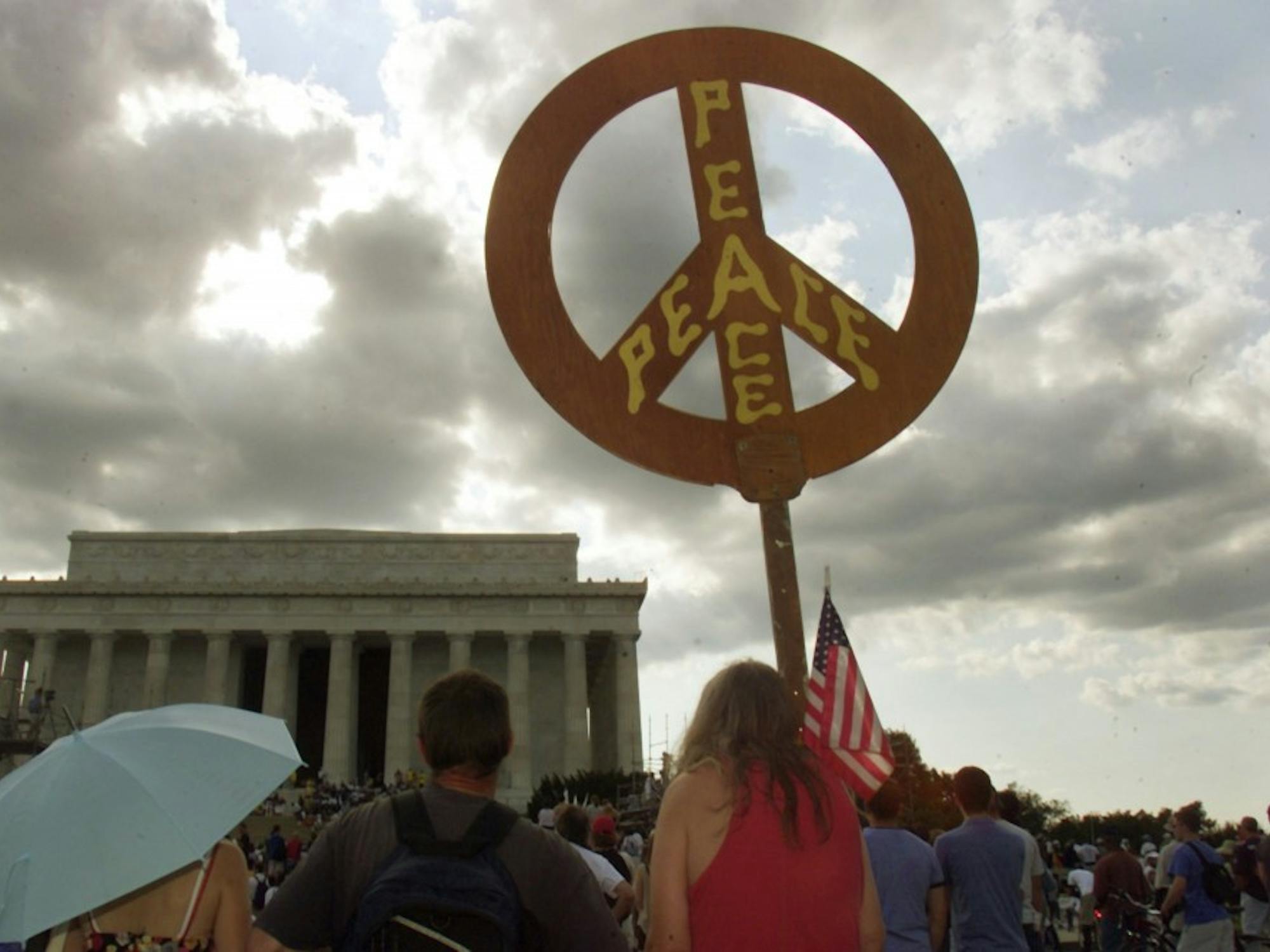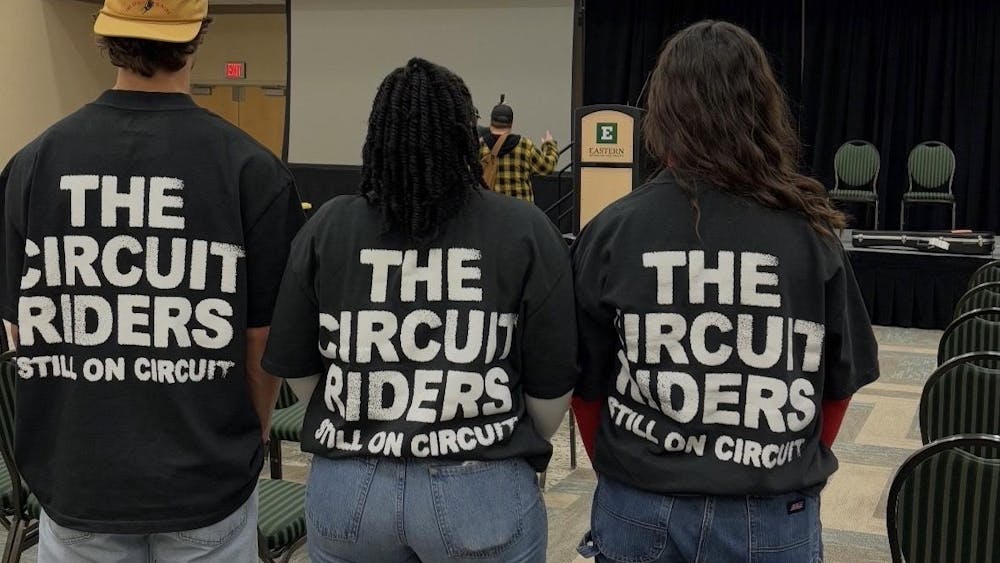We’ve all seen the plethora of bumper stickers advocating peace: “Another family for peace,” “Make love not war” and, my personal favorite, the word “Coexist” written using the symbols for different religions. But these logos and mottos don’t really mean anything by themselves.
Peace has been made out by the media to be some abstract concept—an idea we all dream of but will never actually be achieved.
The reality is comprised of endless discussions on the war on terror, genocide throughout the world, the Israel/Palestine situation and countless other political issues with real-life consequences that seem to make peace unattainable.
Peace, contrary to what our cynical media spreads, does not depend
on the entire world being democratic or following America’s example. We are different nations and tribes, and we will achieve the ideal of peace in different ways.
Unfortunately, a biased media plays a huge role in our view of what a peaceful world might look like, and though the ethnic group scapegoated differs every generation or so, the tactics do not.
The basic formula used by the media is: some ethnic group is viewed as the perpetrator, the police force is characterized as honorable and patriotic and the movie ends with a sound punishment for the villains.
The American media in the 1980s vilified African-Americans, breeding suspicion and fear, so even those who logically knew African-Americans weren’t dangerous were still always suspicious of them. Twenty years later, the media now vilifies Arabs and Muslims, as in the television series “Homeland” or the Oscar-nominated film “Zero Dark Thirty,” with the same result. The media exacerbates fear-mongering already present and slyly promoted in politics.
The situation has become such that many expect peace only when others follow in our American example. And therein lies the problem: Our understanding of peace is skewed.
Peace is living side by side while respecting our differences and realizing these differences are small.
My mother moved to the U.S. more than 25 years ago. Traditionally, when making salad, Palestinians cut the vegetables into very small pieces. But when my parents went out to dinner at a restaurant in Ann Arbor and ordered a salad for the first time, the waitress brought them vegetables that were pretty much uncut—the tomatoes and cucumbers were sliced, not diced, and the lettuce was big and leafy. My mother was shocked, asking, “I came out to a restaurant, and I have to cut my own salad?”
But in the end, salad is salad. It’s the same combination of vegetables; it’s just a different presentation.
The concept of world peace is a multifactorial problem, but in the end, it all boils down to respect. We need to respect our differences and understand the differences are not as divisive as we perceive them. What seem to be huge differences are usually pretty minor; it’s just a matter of perspective.
Next time you watch the news and hear an anchor emphatically pointing out how different “other people” are from us, think about it objectively. Is the supposed difference really such a big difference?
Just enjoy your salad, and let others enjoy their salad, too.









